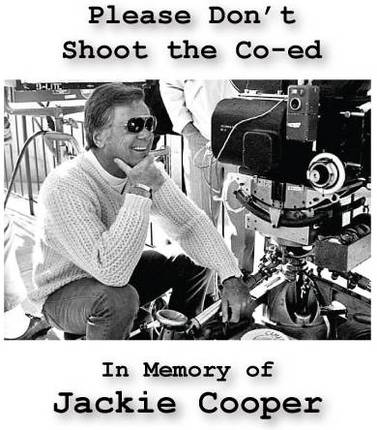
It was sometime in the mid '70s. She had been walking across the USC campus on her way to class when she inadvertently walked into a scene Cooper was directing for a TV series (most likely "The Rockford Files" or "Quincy"). The area was not cordoned off. No production assistants were strategically stationed to stop her. So when Cooper angrily asked her if she knew how much money the blown shot had cost them, she yelled right back, something along the lines of, "Hey, bub, I go to school here! Know how much that costs?!" Cooper told her to get the hell out of there. "Which I did because, you know, I had to get to class," she says.
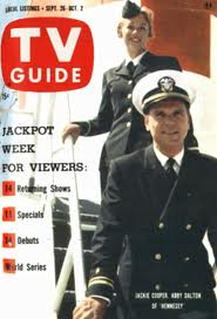
The incident was the first thing my sister-in-law thought of when she heard Cooper died last week at the age of 88. In a way, it's fitting, given how his behavior was reminiscent of the role cited in most of the obituary headlines -- blustery Daily planet editor Perry White, which he played in a quartet of "Superman" films starring the late Christopher Reeve.
The first thing I thought of when I heard of Cooper's passing was a photo that's been with me for nearly 20 years, jammed in series of desk drawers with old birthday cards, canceled checks and orphaned computer cords, too inconsequential to treat with care, too weird to throw out. It shows him leaning over pioneering film producer Hal Roach. On other side of Roach is Cesar Romero, best known as The Joker from TV's "Batman" (1966-68). Laurel & Hardy imitators lurk in the background.
The date was January 12th, 1992. The occasion was a 100th birthday party for Roach, who wouldn't actually turn 100 for another two days. Laurel & Hardy (Jeffrey Weissman and Bevis Faversham) were there because Roach produced dozens of films starring the comedy duo. I always figured Cesar Romero was there because, well... back then it seemed like he would show up for the opening of a tuna can. But it turns out that Roach produced his TV series "Passport to Danger" (1954-56).
As Roach was about to enter the party, he was greeted by Anita Garvin, a full-time resident of the facility who played Laurel's shrewish wife in a numerous films. He then walked into the room under his own power -- slowly -- and was seated in a chair at the back of the room. Charlton Heston showed up to pay his respects. So did B-movie actress Marie Windsor, whose credits include "Cat-Women of the Moon," produced by my wife's great uncle, the late Al Zimbalist.
As the organizers prepared to serenade Roach with "Happy Birthday," people crowded into the room, craning their necks to see him. On my left was a surprisingly tall Dan Aykroyd, who was playing Roach's silent film-producing rival Mack Sennett in the "Chaplin" biopic starring Robert Downey Jr. that would be released later that year. A foot or two away was Micky Dolenz, who had starred in the TV series "Circus Boy" (1956-57) as a preteen before going on to gain fame as a member of The Monkees.
I looked to my right and noticed a short middle-aged man had materialized in front of me. Dressed in a skin-tight jeans and T-shirt combo, showing off a tight, muscular frame, he was accompanied by an attractive younger woman who could've been his girlfriend, his daughter or his assistant. Looking at him, I couldn't help but think of "buffed monkey," a nickname friends had bestowed upon a similarly short and muscular high school classmate.
After studying the man's face for a moment, I realized it was "Baretta" star Robert Blake, who played Mickey in "Our Gang" comedy from 1939 to 1944. He looked uncomfortable, like he wanted to pace the floor, but the crush of people prevented him. It's unlikely Blake had been running into Roach at parties over the years. Was this the first time in decades he was confronting this living ghost from his ghastly childhood, conjuring up memories of brutal abuse at the hands of his alcoholic father who mercilessly pressured him to support the family? ("Being locked in the closets, and beat up, and burned, and sexual stuff...." Blake once said. "I mean, most people like me end up on death row, or in the graveyards, or in prison.")
There's no evidence suggesting Blake had any reason to resent Roach directly. The same cannot be said of Cooper.
Like Blake, Cooper had done a stint in "Our Gang," beginning in 1929. In 1931, Roach loaned out the 9-year-old Cooper to Paramount to star in the film "Skippy" for $25,000, paying the young actor his contractual rate of $50 a week and pocketing the difference. The film gave Cooper the title for his 1982 autobiography “Please Don’t Shoot My Dog,” a plea he made when, in a ploy to get him to cry for a scene, his grandmother had his dog dragged off-set and shot by a security guard. (Not surprisingly, Cooper was adamant that his own four children stay out of show business until they were adults.) The deadly shot was faked, the dog was unhurt, and the film became a smash critical and commercial success, propelling Cooper to superstardom and earning him an Oscar nomination for Best Actor, making him the youngest person ever to be nominated for the award. He eventually lost, but the film’s director Norman Taurog -- a onetime child actor who was Cooper’s uncle -- took home an Oscar for Best Director. Roach subsequently sold Cooper’s contract to MGM, where the towheaded moppet starred in a series of hit films with the gruff and bearish Wallace Beery, including “The Champ” (1931) and “Treasure Island” (1934).
If Cooper harbored any ill-will towards Roach, he didn’t show it at the party. But a person who makes it to 100 tends to inspire a certain amount of awe and curiosity. What's his secret? How'd he last this long? It certainly wasn't because he was a health nut. Roach was a chubby man who was reportedly smoked and drank well into his 90s. At 99, he still went to the racetrack regularly and had a girlfriend. On top of that, his skin was remarkably smooth and taut. That alone would inspire respect and admiration in Hollywood, but, as Noah Cross (John Huston) said in "Chinatown" (1974), even politicians, ugly buildings and whores all get respectable if they last long enough.
Roach's reputation was less stellar back in 1937, when he partnered with Vittorio Mussolini, the son of Fascist dictator Benito Mussolini, to form R.A.M. (short for Roach and Mussolini) Pictures. (Click here for a vintage Time Magazine article on the partnership.) Roach received assurances from the dictator that Italy wasn't planning to impose sanctions on Jews, but people in Hollywood didn't buy it. The backlash moved Roach to back out of the deal, but he reportedly displayed an autographed portrait of the dictator in his home up until his death from pneumonia on November 2, 1992, two and a half months shy of his 101st birthday. Fortunately for Roach, that small corner of his history was all but ignored in his obituaries, which instead focused on his legacy as a film pioneer.
Cooper wasn't quite as lucky. Looking at his sixty-year show business career that included an Oscar nomination as a child actor, lead roles in several successful TV series, including "The People's Choice" (1955-58), and an Emmy-winning career as a TV director ("MASH," "The White Shadow"), many news editors zeroed in on his relatively minor supporting role in a series of comic book movies and decided it would make the most compelling lead.
Me? I chose the time he showed up at some old guy's birthday party.
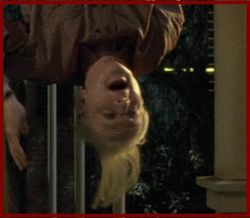
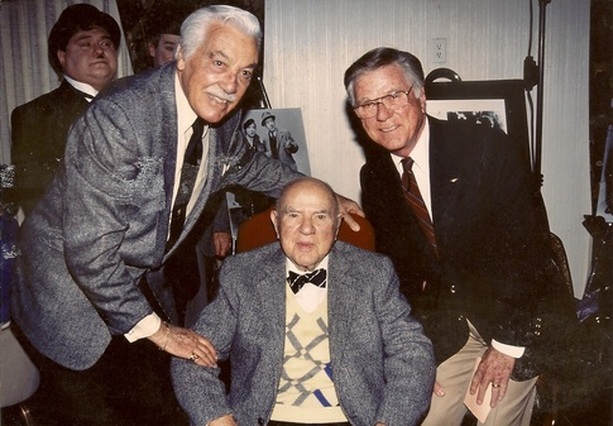
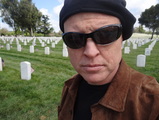
 RSS Feed
RSS Feed
